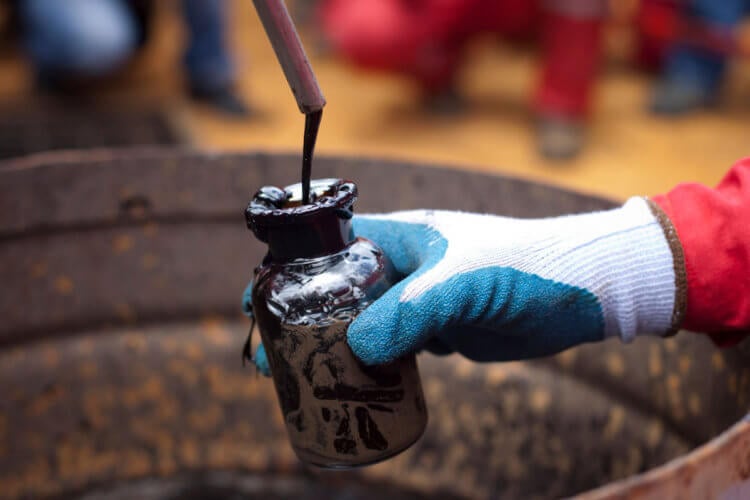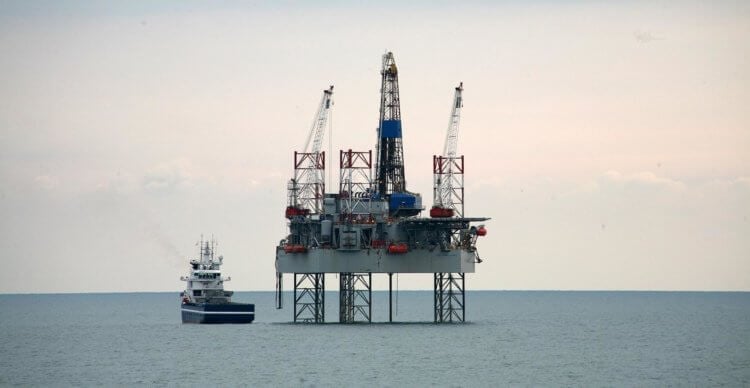Oil can be called one of the most valuable resources. It is used not only to produce fuel and lubricants, but also serves as a raw material for the production of synthetic rubber, rubber, synthetic fabrics, plastic, polymer film, detergents, paints and varnishes, dyes, fertilizers, pesticides, wax and much more. According to the official version, oil is a non-renewable resource, which means that at some point it may run out. Moreover, scientists even make predictions about when this will happen.

Oil may run out at some point. Photo source: itfseafarers.org
Will oil ever run out?
Scientists to this day cannot come to a consensus on how oil appeared on Earth in the first place. We previously told you that, according to one version, oil can be renewed. There is even some evidence of this. However, according to the official version, oil originated from the remains of animals and plants that sank into the Earth. Over hundreds of millions of years, under the influence of heat and high pressure, these remains liquefied and became what we call oil.
Oil production first began about 165 years ago. As we previously told, the first person who began its industrial production was the American Edwin Drake. Since then, oil consumption has been constantly growing, which is not surprising. Currently, it has even begun to be used in the food industry. This makes scientists wonder how many years it will last. After all, known reservoirs are quickly depleted, and finding new deposits is becoming increasingly difficult.

The formation of oil requires special conditions and hundreds of millions of years. Photo source: coalvodorody.ru
However, let us immediately make a reservation that oil cannot completely run out for one simple reason – humanity is simply not capable of extracting oil from some deposits. Presumably, deep in the bowels of the planet there may be huge reserves of this substance, but we cannot yet even test this, let alone extract it. In addition, oil is available in hard-to-reach places, for example, in Antarctica.
How much oil is left on Earth
It is now known where most of the world's oil is located. This is largely due to the fact that plate tectonics determines where oil fields are located. Ocean basins create suitable conditions for the accumulation of large quantities of plant and animal remains. The movement of the earth's crust and the immersion of some plates under others provides the necessary pressure and temperature for the appearance of oil.
As a result, in some regions the probability of discovering oil fields is high, while in others it is low. Considering how much oil has already been extracted, we can roughly calculate how much is left. According to a 2023 study by Rystad Energy, there are still 1.6 trillion barrels of oil available in the world known to exist.

Scientists know approximately how much available oil is left on Earth. Photo source: indicator.ru
In addition, there is oil available that has not yet been discovered and is more difficult to estimate. According to data from the US Geological Survey published in 2012, fields with a total volume of oil of 565 billion barrels remain undiscovered.
How many years will oil last?
For decades now, scientists have been saying that oil reserves will last for 50 years. This figure has not changed, but why is this happening? The reason is that it is calculated based on known deposits. That is, experts take the known volume of oil as a basis and divide it by the annual demand. Since new deposits are regularly found, the figure of 50 years practically does not change.

As the available deposits are developed, oil production will become increasingly difficult. Photo source: itfseafarers.org
But there is no doubt that at some point it will no longer be possible to quickly replenish reserves of «known oil» new deposits. As the easiest deposits to mine are discovered, the opportunities for new discoveries diminish. True, some adjustments are made by new technologies that expand the possibilities of searching for deposits. However, the demand for oil also gradually increased.
Don't forget to subscribe to our Zen and Telegram channels so you don't miss the most interesting and incredible scientific discoveries!
It is quite possible that the situation will change in the future, that is, the demand for oil will stop increasing. Currently, the world has begun to move away from oil as the main source of fuel for cars. For example, according to the International Energy Agency, oil consumption will peak in 2030 and then begin to decline. Therefore, it is quite possible that oil will last much longer than 50 years. But sooner or later humanity will still have to deal with its absence.